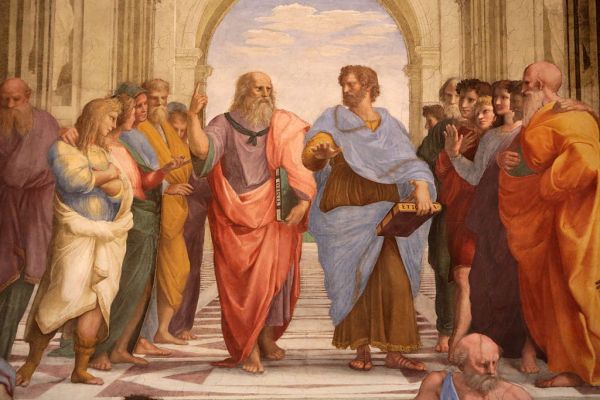Happy Tuesday! We’d like to wish all our readers who are celebrating a very Merry Christmas and Happy Hanukkah, and safe travels if you’re heading home for the holidays. We’ll be back in your inboxes on Friday!
And if you’re scrambling for a last-minute gift today, consider a Dispatch membership. You’ll give your loved one unlimited access to all our great work—fact-based reporting and analysis on the latest in Washington and beyond.
Quick Hits: Today’s Top Stories
- President Joe Biden on Monday commuted the sentences of 37 of the 40 federal prisoners on death row, fulfilling a promise he made during his 2020 presidential campaign. “Make no mistake: I condemn these murderers, grieve for the victims of their despicable acts, and ache for all the families who have suffered unimaginable and irreparable loss,” Biden said in a statement from the White House. “In good conscience, I cannot stand back and let a new administration resume executions that I halted.” The three federal prisoners who still face the death penalty are all terrorists convicted of mass murder: Dzhokhar Tsarnaev, one of the Boston Marathon bombers; Dylan Roof, the white supremacist killer of nine people at Mother Emmanuel AME Church in Charleston, South Carolina; and Robert Bowers, who shot 11 people at Pittsburgh Tree of Life Synagogue.
- Luigi Mangione, accused of killing UnitedHealthcare CEO Brian Thompson earlier this month, pleaded not guilty on Monday to first-degree murder and 10 other state charges in New York, including terrorism. On Thursday, U.S. attorneys unsealed a federal indictment, which included charges for stalking and murder, in addition to the state charges. If he’s found guilty of the federal offenses, he could face the death penalty.
- The House Ethics Committee on Monday released its 37-page report on its monthslong investigation into former Rep. Matt Gaetz, a Florida Republican. The committee concluded that there was “substantial evidence” that Gaetz used illegal drugs and “regularly” paid for sex—including with a 17 year-old-girl—along with receiving improper gifts. Some of the behavior, the report claimed, amounted to violations of Florida state law, including against statutory rape. Gaetz—who resigned from Congress last month after he was briefly in the running to be attorney general—filed a lawsuit on Monday requesting a temporary restraining order against the report’s publication, arguing the Ethics Committee released “potentially defamatory findings about a private citizen over whom it claims no jurisdiction.” He has denied any criminal wrongdoing.
- The Bangladeshi government formally requested on Monday that India extradite former Bangladeshi Prime Minister Sheikh Hasina, who fled to India in August after being ousted during a rash of student protests. Hasina faces multiple charges from Bangladeshi authorities, including of crimes against humanity relating to attempts to suppress mass protests in July and August that resulted in the deaths of 750 people. The Indian foreign ministry confirmed that it had received the request but provided no further details.
- Australia’s attorney general said Monday that Daniel Duggan, a former U.S. Marine who allegedly trained Chinese military pilots, would be extradited to the U.S. Duggan, who is a naturalized Australian citizen and renounced his American citizenship in 2012, was indicted in 2017 by a U.S. grand jury on charges of violating a U.S. arms embargo, allegedly ignoring notifications from the State Department requiring that he registered with the Directorate of Defense Controls and conspiring with a South African test pilot company to enter China and train military pilots. Duggans denies the charges. He was arrested upon returning to Australia in 2022, by Australian police at the request of the American government.
- Nissan and Honda entered a memorandum of understanding to merge the two firms, moving toward creating the third-largest auto company in the world. Mitsubishi Motor Corporation has also agreed to enter into negotiations with the two companies, potentially creating a firm with a $50 billion market capitalization. All three companies have struggled to cope with the expanding market share of electric vehicle manufacturers such Tesla and the Chinese giant BYD.
Great Reads Make for Great Gifts

The week between Christmas and the New Year, when the world—and for our purposes, the news—slows down, is a great time to pick up a good book. For today’s edition, we asked our Dispatch colleagues what they’d recommend—leaving you just enough time to run to your local bookstore and grab it before the big day, either for yourself or as a great last minute gift for that hard-to-buy-for loved one.
Mary Trimble, TMD editor: Last Christmas morning, my eyes flew open at 5 a.m. and refused to close again. I’m not typically much of a morning person—if I’m up before 7, it’s usually under duress. So while the rest of the house slept, I reached for Dodie Smith’s I Capture the Castle, and it captured me. How can you not fall in love with a book that begins, “I write this sitting in the kitchen sink”? That first line has got to be up there with “happy families are all alike,” “it is a truth universally acknowledged,” and “best of times, worst of times,” etc.
Smith is best known for her children’s book, The Hundred and One Dalmatians, but in 1948’s Castle—her first novel—she writes as Cassandra, a 17-year-old girl making journal entries about her life in a decrepit English castle in the 1930s with a hilarious cast of characters, lovably drawn. It’s the story of a girl caught in-between—between childhood and adulthood, poverty and wealth, infatuation and real love.
Smith’s descriptions of Cassandra’s fortune-hunting sister, her erstwhile novelist father, her bohemian step-mother, the bashful and lovesick handyman, and the handsome and wealthy visitors who turn out to be her American landlords all add texture to the story. It’s a novel that’s especially memorable for how it feels, more than for the plot itself—mad-cap though it is. The writing is atmospheric and warm, with the kind of eccentric 1930s Englishness that’s exactly the right note for a Christmas read. Pair with a cup of tea and a window seat or cozy reading nook. And fuzzy socks.
Grayson Logue, TMD deputy editor: I’ve read Amor Towles’ Rules of Civility and The Lincoln Highway, but only came to A Gentleman in Moscow earlier this year. The book tells the story of a Russian aristocrat following the Russian Revolution who, after losing his title, estate, and most of his wealth, is sentenced to house arrest at the Metropol Hotel in Moscow.
Towles jumps across genres in this engaging tale that’s part political history, part romance, part bildungsroman, and even part espionage thriller. He also weaves into the story wonderful cultural vignettes including everything from Casablanca to the pleasures of fine dining—Towles is no stranger to the latter.
The book’s warmth makes for great company during the dreariness of the post-holiday winter months. Plus, there’s the added bonus of a great TV series adaptation for you to watch once you’ve finished the reading.
James Sutton, TMD reporter: For me, Christmas is a great time to indulge in some literary escapism over a few long, lazy afternoons: If you want a book that transports you to another world almost instantly, I can’t recommend Patrick Leigh Fermor’s A Time of Gifts enough. Written by the author at age 62 as a memoir reconstructed from his notes and diaries, Gifts is the first of a three-part chronicle of Fermor’s journey, undertaken when he was 18, from the Netherlands to Istanbul.
The catch? He did it on foot.
Written in the 1960s and ‘70s but recounting a journey undertaken in 1933, Gifts masterfully paints Europe caught between old and new. Fermor stays at the ancien regime castles, still clinging to life, of distant acquaintances, has a memorable turn as a cartoon portraitist in “Red Vienna,” and hitchhikes by barge down the Danube.
It’s masterfully written, with memorable characters and long digressions on everything from Baroque architecture, to German medieval painting, to Latin poetry, and indelible glimpses of places that would be essentially wiped off the map in the next decade. The past is another country, and it’s rare that you have the privilege of exploring it on foot. Give it to a relative who loves to travel, or needs some inspiration to take a journey that’s a little out-of-the-way—it certainly gave that to me.
Victoria Holmes, associate audio/visual editor: I’m fortunate to live just down the street from a wonderful bookstore called “Politics and Prose.” It holds events, has a cute little cafe, and sells fun gifts in addition to the books.
During my most recent visit, I picked up Collected Fictions by Jorge Luis Borges—a single-volume treasure trove of his mesmerizing short stories. Borges’ writing perfectly scratched the itch I’ve had since diving into Through the Looking Glass by Lewis Carroll. I also grabbed A Canticle for Leibowitz by Walter M. Miller Jr. That book was also a very entertaining read, although with a different vibe.
If you’re familiar with Borges or Miller and have any recommendations along the same lines, I’d love to hear them!
Ryan Brown, community and partnerships manager: While it’s often said that history doesn’t repeat itself but rhymes, Jon Grinspan’s The Age of Acrimony: How Americans Fought to Fix Their Democracy, 1865-1915 has me questioning whether our current political environment is doing more than merely “rhyming” with the America of a little more than a century ago.
From political unrest to tariffs, this book is a good reminder that the United States has faced similar—if not worse—challenges to the ones we face today. I read this book in the month leading up to the 2024 election. There were countless times while reading that I asked myself, “Is the author writing about today or the post-reconstruction era?” It was a valuable history lesson that everyone who has anxiety about the direction of the country should read.
The next time someone tells you that “We are living through unprecedented times,” just tell them to read this book. I do not mean to suggest we do not face any real challenges for the next four years and beyond, but the truth is America has always had problems and we always found a solution.
Luis Parrales, associate editor, arts & culture: It’s a great gift when a book can make you see the world anew—when it can help you articulate something you had struggled to verbalize or outright notice something you never had before.
Two books had that effect on me this year.
Jason Blakely’s Lost in Ideology is an absolute treat for any philosophy lover. It’s an accessible survey of major political theories in present-day America—from classical liberalism and conservatism, to socialism, feminism, and environmentalism. (Here’s Mathis Bitton’s instructive review from earlier this year.) But even more admirably, Blakely shows that it’s not just possible to engage with views that are at odds or even antithetical to our own; it can even be exciting.
Charles Taylor’s The Ethics of Authenticity was published in 1991, but it’s just as relevant today. Taylor agrees with some of the greats of the past century (people like Daniel Bell, Allan Bloom, and Christopher Lasch) that one of the main problems of our time is an overemphasis on self-discovery and self-expression. But by the same token, Taylor argues that much of our present emphasis on the self isn’t just inescapable—it’s deeply moral. If you’ve ever thought that critics of modernity make some good points but take things way too far, try Taylor instead.
Steve Hayes, CEO: Anyone who has listened to the Dispatch Podcast has heard me recommend Neil Postman’s Amusing Ourselves to Death: Public Discourse in the Age of Show Business as a prescient and insightful look at the state of our country today. Originally published in 1985 and focused on the distortions to our public discourse created by the growth of television and broadcast media, Postman’s observations are, in many important ways, even more relevant in an age of media disaggregation and social platforms. When I originally read the book, I bristled at some of his critiques of capitalism and the failure of markets to correct the distortions he described. Having listened to it again more recently, I still share some of the skepticism that grew out of my earlier read, but the insights in Amusing are many and the rise and dominance of the infotainment culture he describes makes the book well worth your time.
James Scimecca, editorial partnerships manager: A few years ago, I set out on a journey to read a book on each of our presidents, in no particular order. I’ve made regretfully little progress on this quest (I’ve only read 10 of 46, and I have doubled-up on a few presidents). I half-jokingly named George W. Bush’s Decision Points when the TMD team asked for my recommendation—but then I thought I’d seriously recommend this journey of presidential learning. We’re at a weird point in our history, and there’s no better way to understand the presidency than to understand the men who previously occupied the office. Yes, we saw a lot of unprecedented events during the Trump and Biden administrations—but a lot of our presidents presided over unprecedented events. This year, if you’re not giving the gift of a Dispatch membership, get your loved one a presidential (auto)biography. And if you’re looking for a place to start, I really do recommend Decision Points. It’s a great read, written in a way that makes you feel like you're having a conversation with our 43rd president about some of the most formative events of the 21st century.
Jonah Goldberg, Editor-in-Chief: So as I sat down to write a book recommendation, my daughter came up to me and asked if she could borrow my car. And it got me thinking of how much I miss the days when she’d ask me to read another book to her.
Personally, I think Christmastime books are for reading to—and with—young kids. Or maybe not. I just know that I miss having an excuse to read all sorts of books to my daughter, particularly the ones that are written to be read aloud and encourage a certain amount of silliness. You know, like Tikki Tikki Tembo, The Bear Snores On oeuvre, There Was an Old Lady Who Swallowed A Fly, or Kissinger’s A World Restored: Metternich, Castlereagh, and the Problems of Peace, 1812-22.
Obviously, the best kid’s book for Christmastime reading is the original How The Grinch Stole Christmas. But my favorite kids book—at least my favorite to read to my daughter because, sniff, memories—is The Monster at the End of the This Book, Starring Lovable, Furry Old Grover. I don’t want to give a spoiler, but the monster at the end of the book isn’t Hannibal Lecter or Castlereagh. I’m not saying it’s the best kids book to read, and it’s not particularly Christmassy. I just love it. Because I loved every moment I read it.
Worth Your Time
- “The spies he was after were much closer than he realized: a husband and wife living in a quiet suburban lane less than 3 miles from his office. The couple had spent more than a decade molding themselves into an Argentine family of four, all of them conversing in fluent Spanish. Not even their own children knew who they really were.” In the Wall Street Journal, Drew Hinshaw and Joe Parkinson reported on a gripping, epic, real-life spy story out just in time for your holiday reading: Vladimir Putin’s network of sleeper spies across the globe, and the efforts of Western intelligence to catch them. It’s straight out of The Americans: “Eleven-year-old Sophie spent the journey tapping away on a tablet. Her mother looked at her. At some point, during their flight to Moscow she would have to tell her children the truth: Her name was Anna Dultseva, a citizen of Russia, the country she had quietly served for almost half her life as a deep cover spy.”
- During the Christmas of 1914—the first Christmas of World War I—unofficial ceasefires broke out across the Western Front as soldiers from both sides climbed out of trenches into no-man’s land to play soccer and exchange gifts and season’s greetings. Hear a true account of this remarkable moment as Scottish actor Peter Capaldi reads a letter from Capt. Reginald John Armes to his wife describing the day: “All our men, they got out of the trenches and they sat on the parapet. The Germans did the same. And they talked to one another, in English, and broken English. I got on top of the tench and I talked German, and I asked them to sing a German folk song, which they did. Then our men sang, quite well, and each side clapped and cheered.”
Presented Without Comment
NBC News: Trump Says Ownership of Greenland ‘Is an Absolute Necessity’
Also Presented Without Comment
The Hill: [Former Rep. Matt] Gaetz Floats Possible Bid for [Sen. Marco] Rubio’s Senate Seat
In the Zeitgeist
Is there a more unconventional combo than Bing Crosby and David Bowie? Perhaps not, and yet it scratches a Christmastime itch we didn’t know was there.
Toeing the Company Line
- In the newsletters: Kevin Williamson argued (🔒) Syria’s fortunes can change after the fall of Assad and Nick Catoggio argued (🔒) Biden’s pardons were illogical.
- On the podcasts: Sarah Isgur and David French are joined by Judges Charles Eskridge and Brantley Starr on Advisory Opinions to discuss the origins of the Constitution.
- On the site: Michael Warren writes that last week’s government funding chaos is a foretaste of the next four years, and Chris Stirewalt laments the debasing of the English language.
Let Us Know
What’s your favorite book, holiday-themed or otherwise? Did any books stick with you this year?








Please note that we at The Dispatch hold ourselves, our work, and our commenters to a higher standard than other places on the internet. We welcome comments that foster genuine debate or discussion—including comments critical of us or our work—but responses that include ad hominem attacks on fellow Dispatch members or are intended to stoke fear and anger may be moderated.
With your membership, you only have the ability to comment on The Morning Dispatch articles. Consider upgrading to join the conversation everywhere.